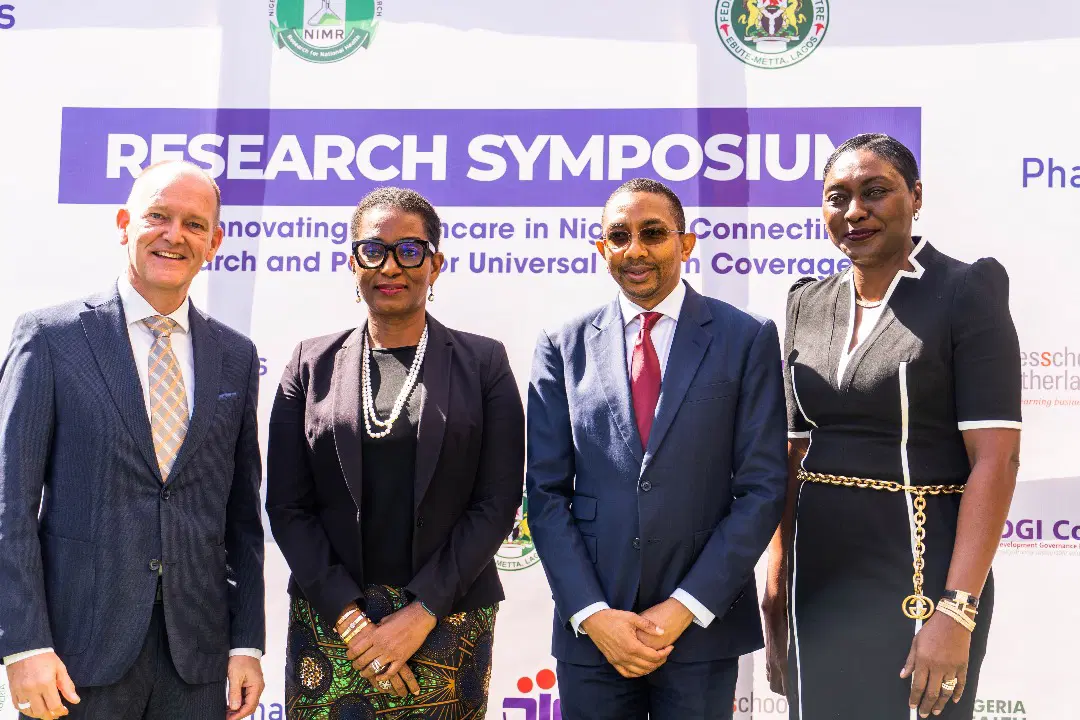The Federal Government of Nigeria has reaffirmed its dedication to transforming the health sector by leveraging research, technology, and innovation to achieve Universal Health Coverage (UHC) and ensure affordable, quality healthcare for all citizens.
Harnessing Research for Better Health Outcomes
Speaking at the 2024 Research Symposium in Abuja, Abdul Mukhtar, National Coordinator of the Presidential Unlocking Healthcare Value Chain Initiative (PVAC), highlighted research as a cornerstone of effective policy-making and a resilient healthcare system. The symposium, themed “Innovating Healthcare in Nigeria: Connecting Research and Policy for UHC,” underscored the critical role of research in addressing the nation’s healthcare challenges.
“Research is not just an academic exercise; it is a practical tool for solving healthcare problems, driving policy innovation, and achieving better health outcomes,” Mukhtar stated.
Mukhtar outlined the government’s four-point health agenda, focused on governance, efficient service delivery, innovation, and health security, anchored by the Health Sector Renewal Investment Initiative (HSRII). He also noted the need to reduce Nigeria’s reliance on imported healthcare products, with 80% of medicines and nearly all vaccines and medical devices currently sourced internationally.
Promoting Domestic Manufacturing and Innovation
The Presidential Initiative for Domestic Healthcare Manufacturing aims to reverse dependency on imports by 2030, fostering job creation and self-reliance in healthcare production. Mukhtar emphasized that achieving these goals requires robust research and digital innovation, supported by advanced IT infrastructure and tools such as artificial intelligence for data collection and analysis.
He praised existing efforts like the Centre for Genomic Research at Redeemer’s University in Osun State, describing them as milestones in Nigeria’s journey to becoming a leader in healthcare innovation. However, he stressed that sustained funding, advocacy, and collaboration are vital for scaling these initiatives.
Global Support and Local Impact
Michel Deelen, Consul-General of the Netherlands in Nigeria, detailed his country’s €46 million investment through the Health Innovation Fund (HIF) to bolster Nigeria’s healthcare sector. He highlighted the successes of digitized social health insurance schemes in Lagos and Kwara States, which have improved inclusivity for vulnerable populations.
In Lagos, the adoption of SafeCare Quality Standards enhanced service delivery across 220 health facilities, with a 66% improvement in facility performance. Nationwide, the National Health Insurance Authority (NHIA), supported by the HIF, is scaling these initiatives to include over 7,000 healthcare facilities.
Deelen also applauded the enactment of the Mandatory Health Insurance Act, facilitated by the HIF, as a transformative step toward reducing out-of-pocket expenses and bridging healthcare access gaps.
“Sustained collaboration is essential to build on these successes and achieve Nigeria’s UHC targets,” Deelen urged.
Innovative Solutions for Local Challenges
Njide Ndili, Country Director of PharmaAccess, emphasized the need for health policies informed by local data to reflect Nigeria’s unique realities. She highlighted digital solutions such as the Mobile App for Triage and Screening (MATS), demonstrating how technology can improve healthcare access, efficiency, and scalability.
“Context-specific, data-driven policies are key to transforming healthcare systems across Africa,” Ndili remarked.
She called for continued innovation and collaboration to address persistent challenges, including low health insurance enrollment and inconsistent care quality.
A Platform for Progress
The symposium served as a platform for stakeholders to explore innovative solutions and share best practices. By integrating research with policy, the Federal Government and its partners aim to drive sustainable progress toward universal health coverage, ensuring that all Nigerians have access to affordable and high-quality healthcare.




